U.S.-Middle East Policy
2 CDs
This is the historic joint appearance by two leading dissident intellectuals before a standing-room-only audience. Chomsky and Said analyze the effects of U.S. policy on the region and, in the case of Edward Said, on his own family history. Chomsky narrates the history of U.S. duplicity and exposes the notion of its being an “honest broker” in the Middle East. Questions and answers focus on events in Yugoslavia.
Introduction by Akeel Bilgrami.
Recorded at Columbia University.
Speakers
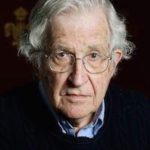
Noam Chomsky
Noam Chomsky, by any measure, has led a most extraordinary life. In one index he is ranked as the eighth most cited person in history, right up there with Aristotle, Shakespeare, Marx, Plato and Freud. His contributions to modern linguistics are legendary. In addition to his pioneering work in that field, he has been a leading voice for peace and social justice for many decades. Chris Hedges says he is “America’s greatest intellectual” who “makes the powerful, as well as their liberal apologists, deeply uncomfortable.” The New Statesman calls him “the conscience of the American people.” He is Professor Emeritus in the Department of Linguistics and Philosophy at MIT and Laureate Professor of Linguistics and Haury Chair in the Program in Environment and Social Justice at the University of Arizona. At 95, he continues to inform and inspire people all over the world. He is the author of scores of books, his latest are Consequences of Capitalism, Chronicles of Dissent and Notes on Resistance.
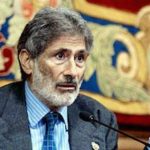
Edward Said
Edward Said, an internationally renowned Columbia University professor, practically invented the field of post-colonial studies. His great works Orientalism and Culture and Imperialism have been translated into many languages and are widely used in colleges and universities. The New York Times called him, “one of the most influential literary and cultural critics in the world.” As one of the few advocates for Palestinian rights in the U.S., he was the target of vilification, death threats and vandalism. The Economist said he “repudiated terrorism in all its forms and was a passionate, eloquent and persistent advocate for justice for the dispossessed Palestinians.” He was a trenchant critic not just of Israeli policies, but also of Arafat, the corrupt coterie around him and the despotic Arab regimes. He wrote: “While I have always advocated resistance to Zionist occupation, I have never argued for anything but peaceful coexistence between us and the Jews of Israel once Israel’s military repression and dispossession of Palestinians has stopped.” Though invited, he refused to attend the September 1993 White House signing ceremony of the Oslo agreement. He denounced it saying “What Israel has gotten is official Palestinian consent to continued occupation.” He felt strongly that intellectuals had a special responsibility to speak out against injustice, challenge power, confront hegemonic thinking, and provide alternatives. His friend Noam Chomsky said of him, “Said was one of the most remarkable and influential intellectuals of the last half-century. Much of his immense effort and talent was dedicated to overcoming the insularity, prejudice, self-righteousness, and apologetics that are among the pathologies of power and defending the rights of the victims.” His memoir Out of Place won the New Yorker Book of the Year Award. His two books of interviews with David Barsamian are The Pen & the Sword and Culture & Resistance. Edward Said died in New York in 2003.


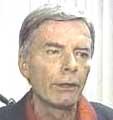
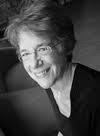
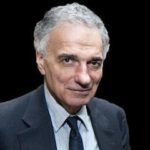
Reviews
There are no reviews yet.